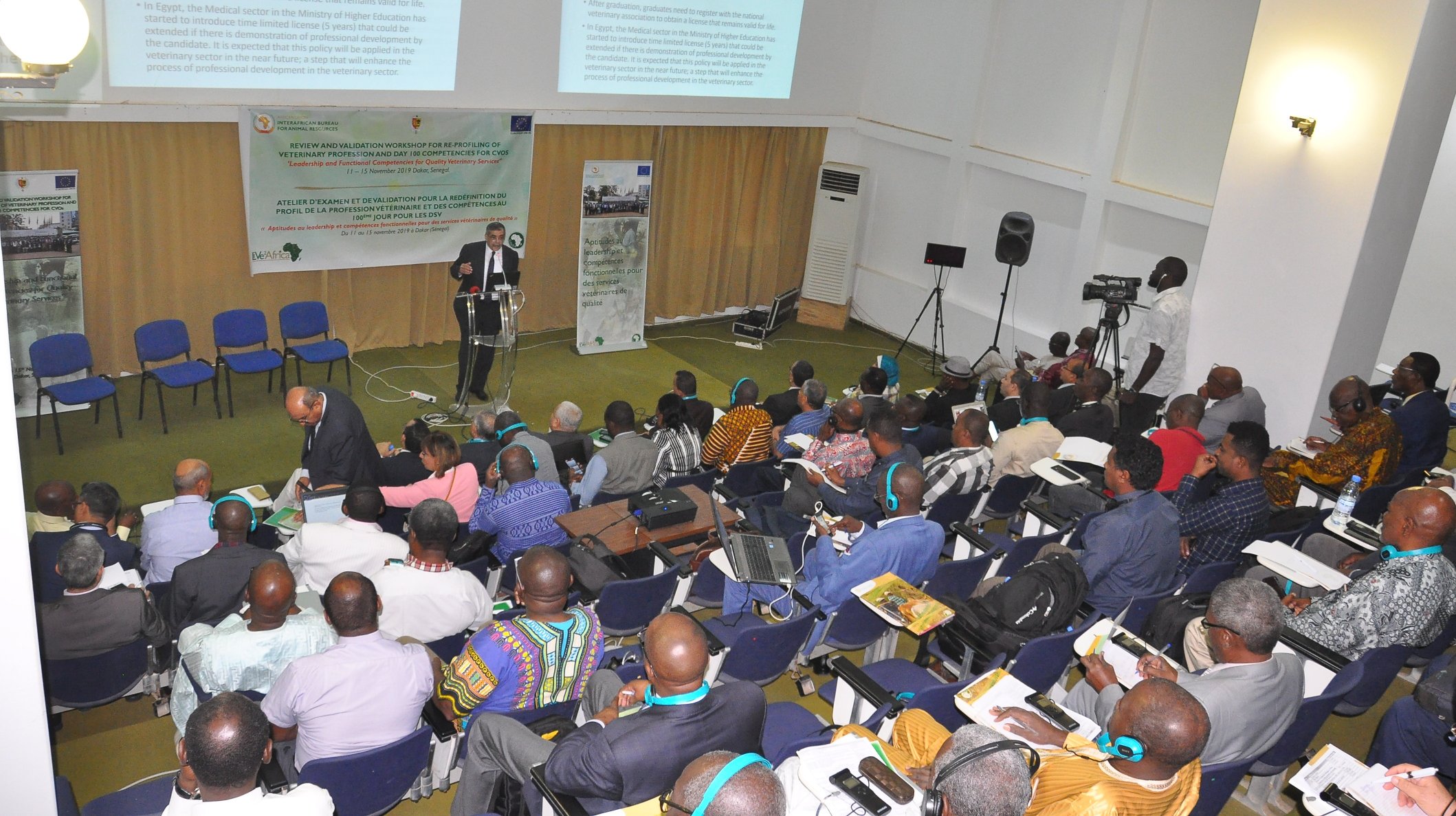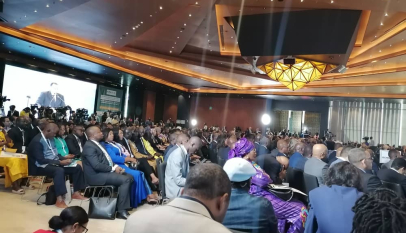AU-IBAR: Transforming Africa`s veterinary sector for improved livestock value-chain development
Over 180 veterinary officers and animal health stakeholders from across 51 African countries were in Dakar, Senegal, last week, for a 5-day capacity building workshop themed: “Leadership and Functional Competencies for Quality Veterinary Services,” convened by the African Union InterAfrican Bureau for Animal Resources (AU-IBAR)

Farm animals or livestock are considered an invaluable asset in the lives of most rural poor in Africa: they are their major assets or rather investments, as well as serving as collateral for access to credits and loans. Beyond that, livestock plays a crucial role in generating income, creating employment, providing food and nutrition security, with some animals also serving as source of draught power for crop cultivation and social cohesion for millions of people worldwide. Thus, the unique multi-functionality of livestock is significant to the lives of the world`s most vulnerable.
Hence, to harness the full potential of Africa`s livestock sector – coupled with a rising regional and global demand for livestock produce – quality veterinary services are required to boost the livestock supply chains from ‘farm to fork’.
It was on this premise that, the African Union InterAfrican Bureau for Animal Resources (AU-IBAR’s) capacity building workshop held November 11-15, in Dakar, Senegal, aimed at strengthening the systemic capacity of continental, regional and national animal and veterinary institutions. The workshop also aimed “to address the challenge facing animal health system and services in the majority of African countries and [provide] a possible direction that the veterinary profession might take to meet the challenges associated [with] a functional veterinary profession,” said a public statement by AU-IBAR.
AU-IBAR is a specialized technical unit of the Department of Rural Economy and Agriculture (DREA) of the African Union Commission (AUC) responsible for coordinating and supporting the development and utilization of animal resources – livestock, fisheries, and wildlife – as sources of nutrition and food security as well as contributing to wellbeing, socio-economic development, and prosperity of the people of Africa.
The workshop on the review and re-profiling of the veterinary profession in Africa as part of the Sustainable Development of Livestock for Livelihoods (Live2Africa), a five-year (2017-2021) programme focused on promoting veterinary education and enhancing the quality of both public and private veterinary service delivery on the continent, being implemented with financial support from the European Union.
In attendance at the training workshop were about 180 delegates from across 51 African countries comprising members of the Africa Association of Veterinary Education Establishments (2A2E-V); Africa Association of Veterinary Statutory Bodies (2VSB); Chief Veterinary Officers (CVOs), from the AU member states as well as members of the African Platform on Animal Welfare (APAW). Others were members of the Pan-African Parliament (PAP); and Animal Health Strategy for Africa Guiding Group (GG); delegates from the African Union Panafrican Veterinary Vaccine Centre (AU-PANVAC), private sector, livestock stakeholders’ associations amongst other key stakeholders in the sector.
Some of the objectives of the workshop were to improve and strengthen the quality and performance of the veterinary sector in Africa as well as developing a Day 100 competencies curriculum for Chief Veterinary Officers (CVOs) and facilitate networking and information sharing among the animal health and welfare professionals.
“The proposed process of re-profiling the veterinary profession and Day 100 competencies for CVOs workshop [was] informed by several continental guidelines and standards including the [AU] Agenda 2063, the AU-IBAR Strategy (2018-2023), the Animal Health Strategy for Africa, and the Livestock Development Strategy (LiDeSA);, the Continental Education Strategy for Africa (CESA 16-25) and the Agricultural Education and Skills Improvement Framework (AESIF) 2015-2025,” said AU-IBAR.
According to AU-IBAR, the need to re-profile the African veterinary profession was aimed at achieving AESIF’s vision: to transform Africa’s Agriculture Education and Training (AET) in order to leverage the quality and quantity of Africa`s skilled workforce required for the advancement of agricultural growth. While the 2015-2035 Livestock Development Strategy for Africa, (LiDeSA) aims to transform the animal sector to deliver on its potential for contributing to economic growth and development targets as enshrined in Agenda 2063, the Malabo Declaration/ the Comprehensive Africa Agriculture Development Programme (CAADP) and the Sustainable Development Goals (SDGs).
“The Animal Health Strategy provides a framework for delivering a sustainable animal health system in Africa that meets World Organization for Animal Health (OIE) and other relevant global standards and also provides a common vision and goals for the African continent for the improvement of animal health delivery systems,” the statement noted.
A 2016 study on “exploring animal health services in the rift valley of Kenya” has indicated shortage of staff knowledge and training gaps in the rift valley region. This is true for most African countries where animals form the backbone of the rural economy yet; access to veterinary services is largely limited among livestock farmers. Thus, the re-profiling of African veterinary officers and animal health stakeholders by AU-IBAR will enhance the skills of animal health practitioners and consequently support the millions of Africans whose livelihood depends on animals across the continent.











